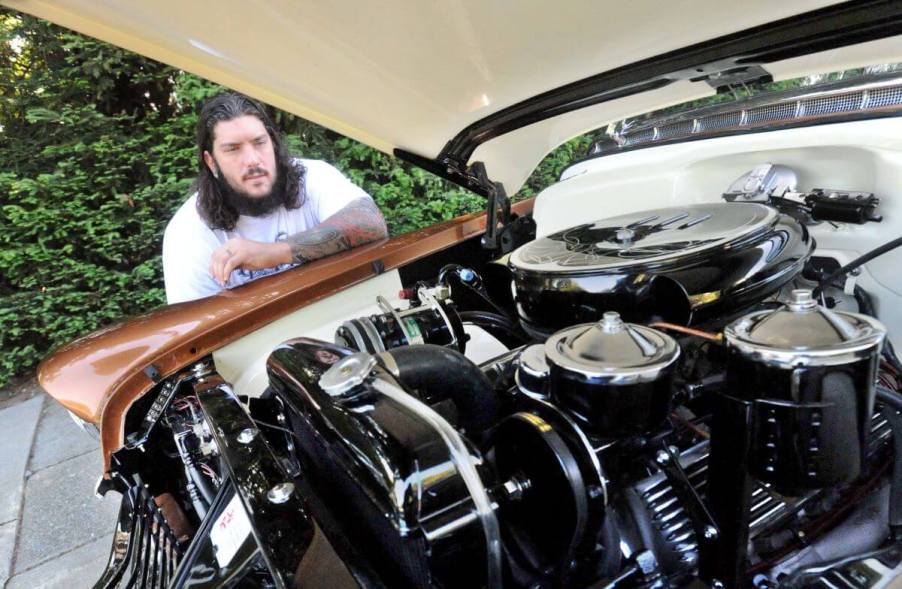
4 of the Most Common Cadillac Problems Are Found in the Same Vehicle
General Motors hasn’t earned a reputation for producing the most reliable cars in the modern era. Many reports of electrical faults, engine issues, transmission failures, and even turbochargers call it quits before 60k miles on engines like the 1.4L Ecotec. This isn’t to say that GM hasn’t produced some gems. Just about anything with the 3800 V6, pre-active fuel management LS engines, and even the 3.6L V6—once the timing chain issue was resolved—can be excellent and inexpensive vehicles to own long-term. Ultimately, every brand has its ups and downs, but today let’s explore the most common problems with General Motors’ most premium brand: Cadillac.
1. Power window regulator failure
According to RepairPal, the most commonly reported problem is a failed window regulator. RepairPal has had over 700 reports of such failure. Owners say the windows are not going down or, worse, not going back up—bad news if you don’t have a garage or carport. Some even claimed to have replaced multiple regulators during a one or two-year ownership. In fact, many owners that reported their experience to RepairPal describe replacing multiple regulators and even replacing the replacement shortly after that.
The culprit of such an incredible failure rate is a small plastic wheel. Unfortunately for Cadillac owners, the window regulator is only sold as an entire unit and cannot be repaired independently. This means your repair bill will be in the $400-$500 range each time. The car in question is the Cadillac DeVille. Most reports seem to be from the eighth-generation DeVille sold between 2000-2005, but RepairPal says the affected model years are 1990-2005.
2. Blend door actuator failure
The second most common Cadillac problem on RepairPal is the delivery of heat and air conditioning into the cabin. These over 600 reported problems are again for a 1990-2005 Cadillac DeVille. Airflow and temperature control are regulated by a part called the blend door actuator. Based on information from owners, their blend door actuators are either acting up or failing completely, regardless of mileage.
The blend door actuator works with your temperature and airflow controls; depending on the vehicle, you may have more than one. The blend door controls where the air comes out and what temperature the air is, and the actuator moves that door. For instance, if you set the temperature to 60 degrees Fahrenheit (or to the blue side of the temp dial on cars without auto climate), the blend door will allow a “blend” of hot and cool air to pass through into the cabin to achieve the desired temperature.
If the actuator fails, the door won’t be able to move in conjunction with the HVAC controls. As a result, many symptoms report airflow being stuck coming out of defrost vents or only coming out of the floor vents. Other owners describe hot air coming out one side and cold air coming out another regardless of how the controls are set. RepairPal reports that the average repair cost for a blend door actuator on a Cadillac DeVille is between $882-$1002.
3. The Northstar engine leaks like crazy

Cadillac’s third most common problem has over 500 reports on RepairPal. Here is a fact shocking to no one: it’s another Cadillac DeVille causing all the trouble! RepairPal notes the affected years as 1990-2005, but this oil leaking issue is really only a concern for DeVille’s fitted with the 4.6L Northstar V8. The Northstar was introduced for the seventh-generation DeVille which began in 1994, so it’s a safe bet that a DeVille from a previous generation will not have this precise issue.
The Northstar can leak from many, many, many places. As noted by many owners, the most expensive leak is the lower crankcase. This can require an engine out service to repair and can be in the $2,000-$2,500 range. According to RB Auto Service, which specializes in Northstar engines, there are pressurized passages in the lower crankcase, so these leaks can get gnarly.
Quite frankly, unless you adore your Northstar Caddy, the best financial decision is to avoid them like the plague. That said, if you own one and wish to fix these leaks, the repair process is well-documented, and many shops are familiar with the widespread nature of this issue. It just might be expensive.
4. Early chipped keys can spell trouble for DeVille owners
The 1990s and early 2000s saw the introduction of chipped keys. These types of keys aren’t just about turning in the ignition barrel. The key has a chip that must be present and working to signal to the anti-theft system so the car can start. If you lose a key, a copy will not work unless programmed.
If it’s not a key issue, small wires to the ignition lock cylinder also tend to break, causing a no-start condition. Some reports claim these wires can break prematurely if you have other keys on your keychain—which most people do. The added weight seems to advance the deterioration of the already weak connection. The average mileage for this issue tends to be around 120k, and RepairPal says the average cost to replace the ignition barrel—not including reprogramming and cutting keys—is about $250.



